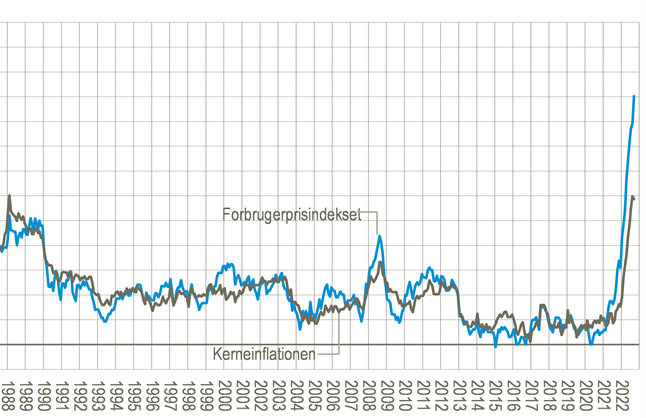It’s good news if you’re a homeowner and worried you won’t be able to pay your bills.
First off, house prices have surprisingly risen for the second month in a row.
And core inflation (everything excluding energy and food) has just fallen for the sixth consecutive month: down from 6.4 to 6.1 percent for April, according to Danmarks Statistik.
Downward trend still expected, but no collapse
According to the Boligsiden Market Index figures for April, the price of villas and terraced houses in Denmark rose by 0.9 percent over the last month.
And owner-occupied flat and summerhouse prices rose even more steeply – by 1.3 and 1.8 percent respectively.
The increases are fuelling optimism there won’t be a significant fall in property prices in 2023 – as was previously feared. However, prices are still expected to fall over the course of the year.
“There may well be a price drop, but no collapse. Any comparison with the Financial Crisis is misplaced,” Curt Liliegreen, the head of Boligøkonomisk Videncenter, told DR.
Food prices continue to increase
Nevertheless, inflation remains high, and the overall consumer price index rose by 5.3 percent compared to April 2022 – a dip on the 6.7 percent year-on-year rise in March.
Fuelled by a continued rise in food prices – from milk and cheese to chocolate and jam – shoppers are still feeling the pinch at supermarkets that have promised price falls, but can’t say when.
Inflation peaked at 10.1 percent last October before starting to fall. The normal inflation rate in Denmark in recent years has been 2 percent.
















